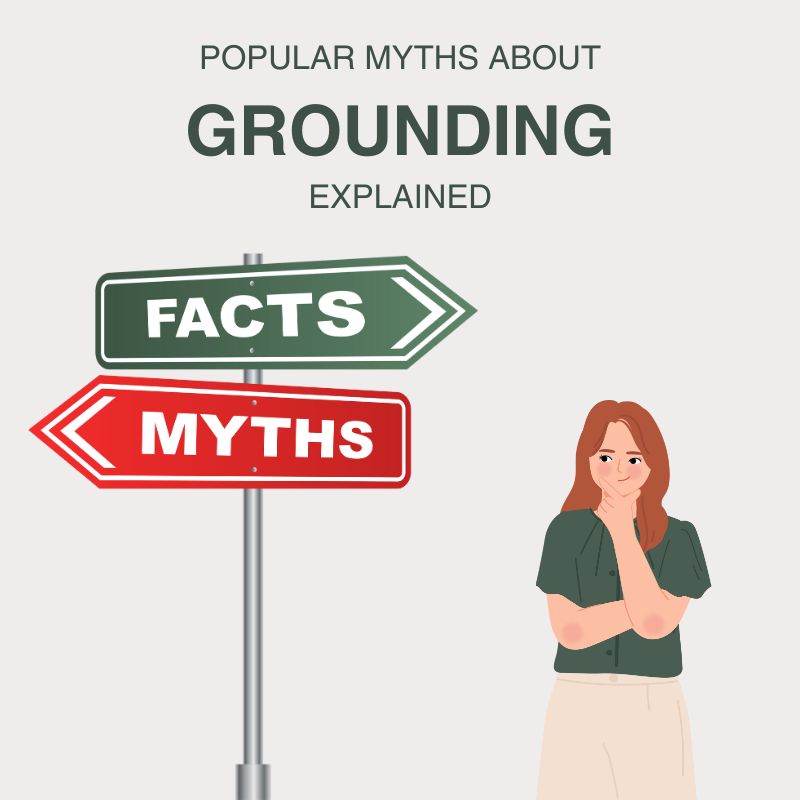
Myths and Truth About Grounding – How It Impacts Our Health
In recent years, grounding (also called earthing) has gained attention as a simple yet powerful way to support our well-being. Walking barefoot on grass, lying on the beach, or using grounding sheets at home – these are all ways to reconnect with the Earth’s natural energy. But with popularity comes confusion. Some call grounding a “miracle cure,” while others dismiss it as pseudoscience. So, what’s the truth?
Let’s separate the myths from the facts.
-Myth 1: Grounding is just a trend without any science behind it
Truth: Research is growing. Studies show that direct contact with the Earth’s surface can help reduce inflammation, improve sleep, regulate cortisol levels, and even support faster recovery after exercise. While grounding is still an emerging field, evidence suggests it affects the body’s electrical system by balancing free radicals and restoring natural bioelectrical rhythms.
-Myth 2: You need hours barefoot outside every day to benefit
Truth: Even short, regular grounding sessions make a difference. Just 20–30 minutes a day can already influence stress levels and sleep quality. And for people who can’t spend much time outdoors, grounding mats or sheets are a practical alternative that bring Earth’s energy indoors.
-Myth 3: Grounding works instantly like a magic pill
Truth: Some people feel calmer or sleep better after their first grounding experience, while others notice changes over weeks. Like exercise or meditation, grounding works best with consistency. It’s not about a one-time miracle but about gently restoring balance to the body.
-Myth 4: Only “spiritual” people practice grounding
Truth: Grounding is for everyone. Athletes use it for faster muscle recovery, office workers for stress relief, and people with chronic pain for better sleep and reduced discomfort. Whether or not you connect it to spirituality, the Earth’s energy is simply part of our biology.
-Myth 5: Grounding has no real effect on emotions or mental health
Truth: Studies and personal experiences show grounding helps calm the nervous system, reduces anxiety, and increases mental clarity. Being in direct contact with the Earth naturally lowers stress hormones and supports emotional resilience – something most of us could use in today’s fast-paced world.
The Bigger Picture
Grounding is not about replacing medicine or ignoring healthy habits. It’s about reconnecting with a natural resource we’ve become disconnected from. Think of it as charging your inner battery – restoring balance, calm, and vitality.
In our modern world, we are surrounded by artificial light, constant screen time, and insulated from nature by rubber-soled shoes and concrete floors. Grounding is a gentle reminder that sometimes, the simplest solutions – like stepping barefoot on the Earth – can have the most profound impact.
